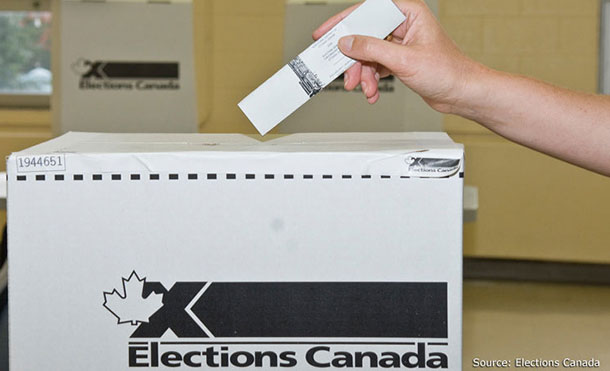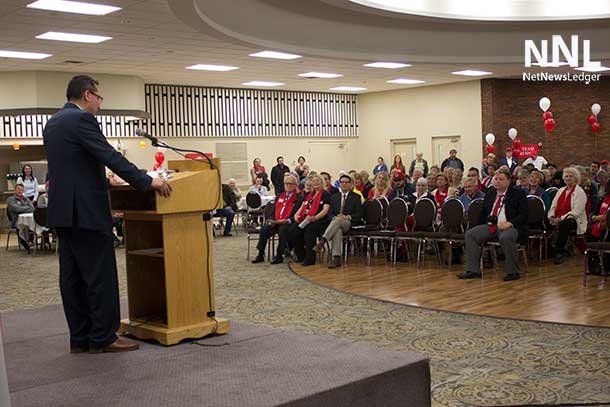 THUNDER BAY – POLITICS – Today, Abacus Data states that 30% of voters say they have made up their mind about which party they will vote for and won’t be changing, while 70% have not fully decided. This is unchanged from our last wave of surveying.
THUNDER BAY – POLITICS – Today, Abacus Data states that 30% of voters say they have made up their mind about which party they will vote for and won’t be changing, while 70% have not fully decided. This is unchanged from our last wave of surveying.
When asked when they think they will be making up their mind, responses show that many will be waiting till much later in the campaign. As many as one in three (35%) will not make up their minds until the final weekend. Almost one in five (19%) say they’ll decide on Election Day.
Desire for Change
Today, 76% say they think it would be good to have a change of government in Ottawa, including 59% who say it’s definitely time for a change in government. The number strongly in favour of change is up 6 points since our last survey. Just 16% are sure they want the Conservatives to win another term, and another 8% feel mildly this way.
Horse-race Numbers
Our national horserace numbers show the NDP leading with 35% followed by the Conservatives at 29% and the Liberals at 26%. In the two provinces that account for the most seats, the NDP is very competitive: neck and neck with the other major parties in Ontario and holding a substantial lead in Quebec.
A few other points of note underneath the surface of our horserace number – among those who are:
– Demanding change (the 59% who most want change) the NDP has 51%, LPC 35%
– Persuadable (the 70% who haven’t fully decided) the NDP has 36%, LPC 28%, CPC 24%.
– Decided (the 30% who have decided), the CPC has 39%, NDP 32%, LPC 22%.
About half of Conservative voters say they might change their mind before Election Day, while almost two thirds of the supporters of the Liberals and the NDP might.
Who will win?
Today 26% think the Conservatives will win, 22% say the NDP will win and 17% say the Liberals. Belief that the NDP can win the election has grown substantially since the Spring, when the NDP won the Alberta election. Today, 34% say they are unsure about which party will win, up 7 points.
How People Feel about Each Outcome
We asked people how they would feel about a variety of possible outcomes. The results show:
– 50% would be unhappy or hate a CPC majority, 39% say the same thing about a NDP majority and 43% about an LPC majority.
– 45% would be unhappy or hate a CPC minority, while 39% and 38% say that respectively about a LPC or NDP minority.
– Levels of enthusiasm for any of the outcomes tested are modest, but roughly half or more would acquiesce to any of the possible outcomes.
The Upshot?
This election campaign is in its infancy. The results suggest a population that is only lightly engaged to this point and holding only mild preferences in terms of outcomes or voting inclinations.
The NDP had been on an upward trajectory since the spring (coincident with the Notley win in Alberta) and is, at this point in time, winning the critical fight with the Liberals among those who most want change. Both parties should see this fight as in the early rounds, as 60% or more of their supporters are not really locked in, and many open to either a Liberal or and NDP victory.
The Conservatives remain competitive but well below the levels needed to imagine another majority. The Liberals continue to show strength in Atlantic Canada, competitiveness in Ontario, and possibly slight improvement in Quebec as well.
We believe any of the three major parties can win this election, and any of them could finish third, based on the extraordinarily loose attachments to parties these days and the very early stage we are at in the voters’ decision making process.
Methodology
Our survey, commissioned by Abacus Data, was conducted online with 1,439 Canadians aged 18 and over from August 14 to 17, 2015. A random sample of panelists was invited to complete the survey from a large representative panel of over 500,000 Canadians, recruited and managed by Research Now, one of the world’s leading provider of online research samples.
The Marketing Research and Intelligence Association policy limits statements about margins of sampling error for most online surveys. The margin of error for a comparable probability-based random sample of the same size is +/- 2.6%, 19 times out of 20. The data were weighted according to census data to ensure that the sample matched Canada’s population according to age, gender, educational attainment, and region. Totals may not add up to 100 due to rounding.





